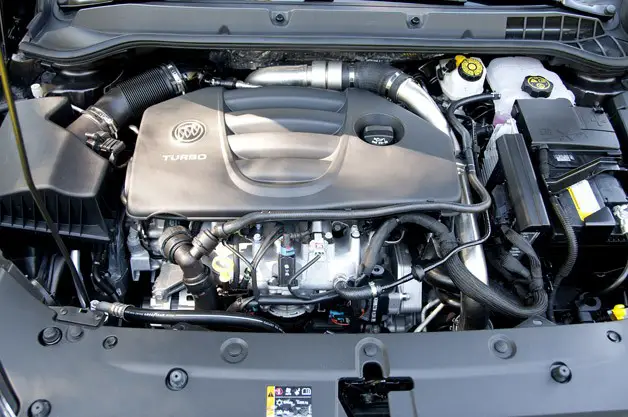When it comes to maintaining your Chevy Cruze, understanding the costs involved is crucial for any owner.
The intake manifold, a key component in your engine’s performance, may occasionally require replacement.
But how much does a Chevy Cruze intake manifold replacement cost? This question lingers in the minds of many Chevy owners.
In this article, we delve into the factors that influence the cost, offering you a clear breakdown of what to expect financially.
From labor expenses to parts pricing, we aim to provide a comprehensive guide that stands out, ensuring you’re well-informed before making any decisions.
Stay tuned as we explore this essential aspect of vehicle upkeep.
Also Read: 2009 Ford F-350 Specs: 6.4L V8 Diesel Engine
How Much Will You Pay For A Chevy Cruze Intake Manifold?
The cost of replacing an intake manifold in a Chevy Cruze can vary widely, depending on several factors. Generally, the price for the part itself ranges from $200 to $600. Labor costs can add $100 to $500 to the bill, depending on the complexity of the job and the rates charged by the service provider.
For a Chevy Cruze, particularly the 1.4L Turbo engine, the intake manifold from an original equipment manufacturer (OEM) can cost about $300. Opting for a non-branded or aftermarket part could reduce the part cost to around $120, but it’s often recommended to stick with OEM parts for quality and reliability.
When it comes to labor, prices will differ based on where you go. An independent shop may charge around $400 for labor, while a dealership could charge up to $700. It’s important to choose a trusted service provider to ensure the job is done correctly.
Can DIY Methods Cut Costs On Chevy Cruze Intake Manifold Replacements?
Yes, DIY methods can significantly cut costs on Chevy Cruze intake manifold replacements.
-
Tools and Equipment
You’ll need a set of basic hand tools, including ratchets, sockets, and screwdrivers. A torque wrench is also essential to ensure all bolts are tightened to the manufacturer’s specifications.
-
Parts
You can purchase an intake manifold from an auto parts store or online. Prices may vary, but aftermarket parts typically offer a cost-saving alternative to OEM parts without a significant compromise in quality.
-
Time
Set aside adequate time for the job. For someone with mechanical experience, it might take approximately two hours to remove and replace the manifold. First-timers should allow for more time.
-
Procedure
The process involves removing various connections such as the EVAP purge solenoid, brake booster line, and sensor wiring connectors. You’ll also need to detach the throttle body and intake tube. After removing the old manifold, the new one must be installed with all connections securely reattached.
-
Potential Challenges
Be prepared for potential challenges such as seized bolts or unexpected issues like discovering additional parts that may need replacement once the manifold is removed.

What Are The Signs Of A Failing Intake Manifold In A Chevy Cruze?
-
Engine Misfires
One of the first signs of a problem with the intake manifold is engine misfires. This occurs when the air-fuel mixture in the engine cylinders is not properly balanced due to a leak or blockage in the manifold.
-
Reduced Engine Performance
A compromised intake manifold can lead to a noticeable decrease in engine performance. The engine may struggle to accelerate or fail to maintain consistent power output.
-
Odd Engine Sounds
Unusual noises coming from the engine, such as whistling or hissing, can indicate a vacuum leak in the intake manifold. These sounds are typically more noticeable when accelerating.
-
Engine Overheating
If the intake manifold fails, it can cause the engine to overheat. This is often due to a disruption in the coolant flow, which is critical for maintaining optimal engine temperature.
-
Increased Fuel Consumption
A failing intake manifold can lead to higher fuel consumption as the engine compensates for the loss of air pressure and the resulting inefficiency in combustion.
-
Check Engine Light
The appearance of the check engine light on your dashboard can be triggered by various issues, including those related to the intake manifold. Diagnostic trouble codes such as P1101 and P0171 are often associated with manifold problems.
Is The Intake Manifold Replacement Cost Worth It For Your Chevy Cruze?
Determining whether the cost of replacing the intake manifold on your Chevy Cruze is worth it involves considering both the short-term and long-term benefits. The intake manifold is a critical component of your engine, responsible for evenly distributing the air-fuel mixture to each cylinder. A malfunctioning manifold can lead to a variety of engine issues, from reduced performance to complete failure.
-
Short-term Benefits
In the immediate sense, replacing a faulty intake manifold restores engine performance, fuel efficiency, and smooth operation. It also resolves any related symptoms, such as misfires or overheating, which can prevent further damage to the engine.
-
Long-term Benefits
Over time, a new intake manifold can prolong the life of your engine. By ensuring proper air distribution, it helps maintain the engine’s health and prevents the cascading failures that can result from a compromised air-fuel mixture.
-
Cost vs. Value
While the upfront cost may seem high, ranging from a few hundred to over a thousand dollars depending on various factors, the value comes from avoiding more expensive repairs down the line. An untreated issue with the intake manifold can lead to severe engine damage, which would be far costlier to address.
-
Vehicle Age and Condition
If your Chevy Cruze is relatively new and in good condition, investing in the replacement is more likely to be worth it. For an older vehicle with multiple issues, you might consider whether the cost of repairs justifies the remaining lifespan of the car.
How Do You Know If Your Intake Manifold Needs To Be Replaced?
Knowing when your Chevy Cruze’s intake manifold needs replacement is key to maintaining your vehicle’s performance. Here are the signs that indicate a replacement may be necessary:
Engine Misfires: If your engine is misfiring, it could be due to an imbalance in the air-fuel mixture caused by a faulty intake manifold.
Reduced Performance: A failing manifold can lead to a noticeable drop in engine power and responsiveness.
Unusual Noises: Hissing or whistling sounds from the engine area can signal a vacuum leak in the manifold.
Overheating Engine: An overheating engine might be a symptom of a problem with the intake manifold affecting coolant flow.
Increased Fuel Consumption: If you’re visiting the gas station more often, it could be due to a compromised manifold affecting fuel efficiency.
Check Engine Light: The check engine light can illuminate for various reasons, including issues with the intake manifold. Specific codes related to the manifold might be stored in the vehicle’s computer system.

Is It Worth Replacing the Intake Manifold?
Deciding whether it’s worth replacing the intake manifold on your Chevy Cruze involves weighing the cost against the benefits.
Restored Engine Performance: A new manifold will restore proper airflow, improving engine power and responsiveness.
Improved Fuel Efficiency: With the air-fuel mixture optimized, your vehicle can achieve better mileage.
Prevention of Engine Damage: Addressing manifold issues early can prevent more serious and costly engine damage.
Cost Considerations
Part Costs: Depending on whether you choose an OEM or aftermarket part, costs can vary significantly.
Labor Costs: If you’re not performing the replacement yourself, labor can be a considerable expense.
Vehicle’s Age and Condition
Newer Vehicle: For a newer Cruze, the replacement can extend the life of the car and is often worth the investment.
Older Vehicle: If your Cruze is older and has other issues, you might consider if the cost outweighs the value of the car.
Can I Drive My Car With A Bad Intake Manifold?
Here’s why you should avoid driving with a bad intake manifold:
-
Engine Damage
A faulty manifold can cause engine misfires, which over time can damage the engine’s internal components.
-
Performance Issues
Reduced engine performance and acceleration can make your vehicle unreliable and potentially unsafe to drive.
-
Overheating
If the manifold issue affects the coolant flow, it could lead to engine overheating, which can cause significant engine damage.
-
Increased Emissions
A bad intake manifold can lead to increased emissions, which is not only bad for the environment but may also cause your vehicle to fail emissions testing.
-
Fuel Economy
Your fuel efficiency will likely suffer, costing you more at the pump and indicating that the engine is not running optimally.
How Long Will An Intake Manifold Last?
It’s not uncommon for an intake manifold to require replacement sooner due to issues such as:
-
Material Fatigue
Over time, the materials used in the construction of the intake manifold can degrade due to the constant heat cycles and pressure changes within the engine compartment.
-
Gasket Failure
The gaskets that seal the intake manifold can fail, leading to leaks that can damage the manifold itself.
-
Mechanical Damage
Physical damage from debris or during other repair work can compromise the integrity of the manifold.
-
Corrosion
In some cases, especially in older vehicles, the manifold can corrode, which can lead to leaks or a decrease in performance.
Does Intake Manifold Affect Sound?
Airflow: The manifold channels air into the engine. Variations in the airflow, such as those caused by a leak or a design that enhances airflow, can change the sound.
Resonance: The shape and volume of the intake manifold can create resonances that may amplify or dampen certain engine sounds.
Material: The material of the manifold can absorb or reflect sound waves differently, affecting the noise that emanates from the engine.
Condition: A damaged or failing manifold may produce a hissing or tapping sound due to air escaping from cracks or leaks.
Conclusion
The question, “How much does a Chevy Cruze intake manifold replacement cost?” is more than just a query—it’s a gateway to understanding the value of vehicle maintenance.
The cost, while varying, is a testament to the importance of addressing engine health proactively.
Whether you choose the DIY route or professional service, the investment safeguards your Cruze’s performance and longevity.
Remember, the price paid pales in comparison to the cost of neglect.
So, consider this an investment in your vehicle’s future, ensuring it continues to run smoothly on the road ahead.
Drive confidently, knowing you’ve made a wise choice for your Chevy Cruze.




